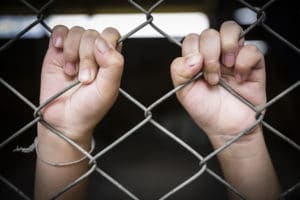The reforms have a goal of helping kids pursue new lives outside of the system
As Governor Gavin Newsom adjusts to life as California’s newest governor, he has set his sights on an ambitious goal: overhauling the state’s juvenile justice system. His current priorities include getting rid of adult-style facilities for incarceration and introducing programs where young people acquire skills and job training. To start, Governor Newsom will move the Division of Juvenile Justice out of California’s Department of Rehabilitation and Corrections.
The reforms envisioned by Governor Newsom recognize the studies on the impact of incarceration on youth. According to Dr. Barry Krisberg, the president of the National Council on Crime and Delinquency and a professor at the University of California, Berkeley, “We have to recognize that incarceration of youth per se is toxic. So we need to reduce incarceration of young people to the very small dangerous few. And we’ve got to recognize that we lock up a lot of kids, it’s going to increase crime.”
Currently, California has one of the highest rates of incarcerated juveniles, with 235 juveniles out of every 100,000 in a juvenile justice facility. Governor Newsom aims to reduce that rate by getting minors who find themselves in trouble with the law into programs that teach skills.
As a Rancho Cucamonga criminal defense attorney can explain, the current goal of the California juvenile justice system is rehabilitation — not punishment or retribution. However, there are four potential consequences within the juvenile system, including commitment to the California Youth Authority, or CYA (now called the Division of Juvenile Justice, but frequently referred to as CYA). Sanctions may also include:
- Paying a fine or restitution;
- Community service;
- Attending a victim impact class;
- Placement in a foster home;
- Probation or parole, with conditions;
- Commitment to a juvenile hall, camp or ranch; and/or
- Commitment to CYA.
Most of these sanctions may have a stated goal of rehabilitation, but often feel like punishment to the juveniles who receive them as sentences. A broader program that emphasizes job training and skills may provide the benefits that may juveniles need to get their lives back on track if they have found themselves in trouble with the law.
As parents, we want what is best for our kids. If your son or daughter has been charged with a criminal offense as a juvenile, the Chambers Law Firm can help. Attorney Dan E. Chambers is a former prosecutor who puts his knowledge of the system to work for his clients. We investigate each case thoroughly, and use our skill and tenacity to fight for each of our clients. Contact us today at 714-760-4088 or dchambers@clfca.com to schedule a free initial consultation with a Rancho Cucamonga criminal defense attorney.





